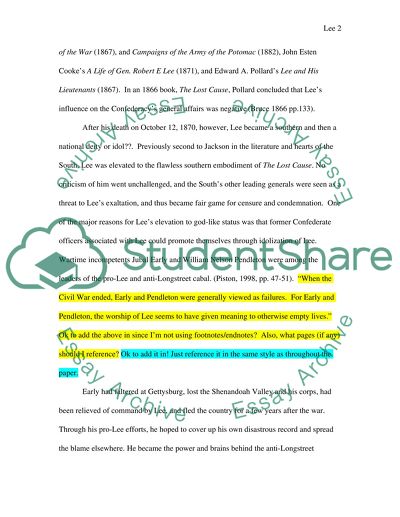Cite this document
(“Historiography on General Robert E. Lee Essay Example | Topics and Well Written Essays - 2000 words”, n.d.)
Historiography on General Robert E. Lee Essay Example | Topics and Well Written Essays - 2000 words. Retrieved from https://studentshare.org/miscellaneous/1514866-historiography-on-general-robert-e-lee
Historiography on General Robert E. Lee Essay Example | Topics and Well Written Essays - 2000 words. Retrieved from https://studentshare.org/miscellaneous/1514866-historiography-on-general-robert-e-lee
(Historiography on General Robert E. Lee Essay Example | Topics and Well Written Essays - 2000 Words)
Historiography on General Robert E. Lee Essay Example | Topics and Well Written Essays - 2000 Words. https://studentshare.org/miscellaneous/1514866-historiography-on-general-robert-e-lee.
Historiography on General Robert E. Lee Essay Example | Topics and Well Written Essays - 2000 Words. https://studentshare.org/miscellaneous/1514866-historiography-on-general-robert-e-lee.
“Historiography on General Robert E. Lee Essay Example | Topics and Well Written Essays - 2000 Words”, n.d. https://studentshare.org/miscellaneous/1514866-historiography-on-general-robert-e-lee.


